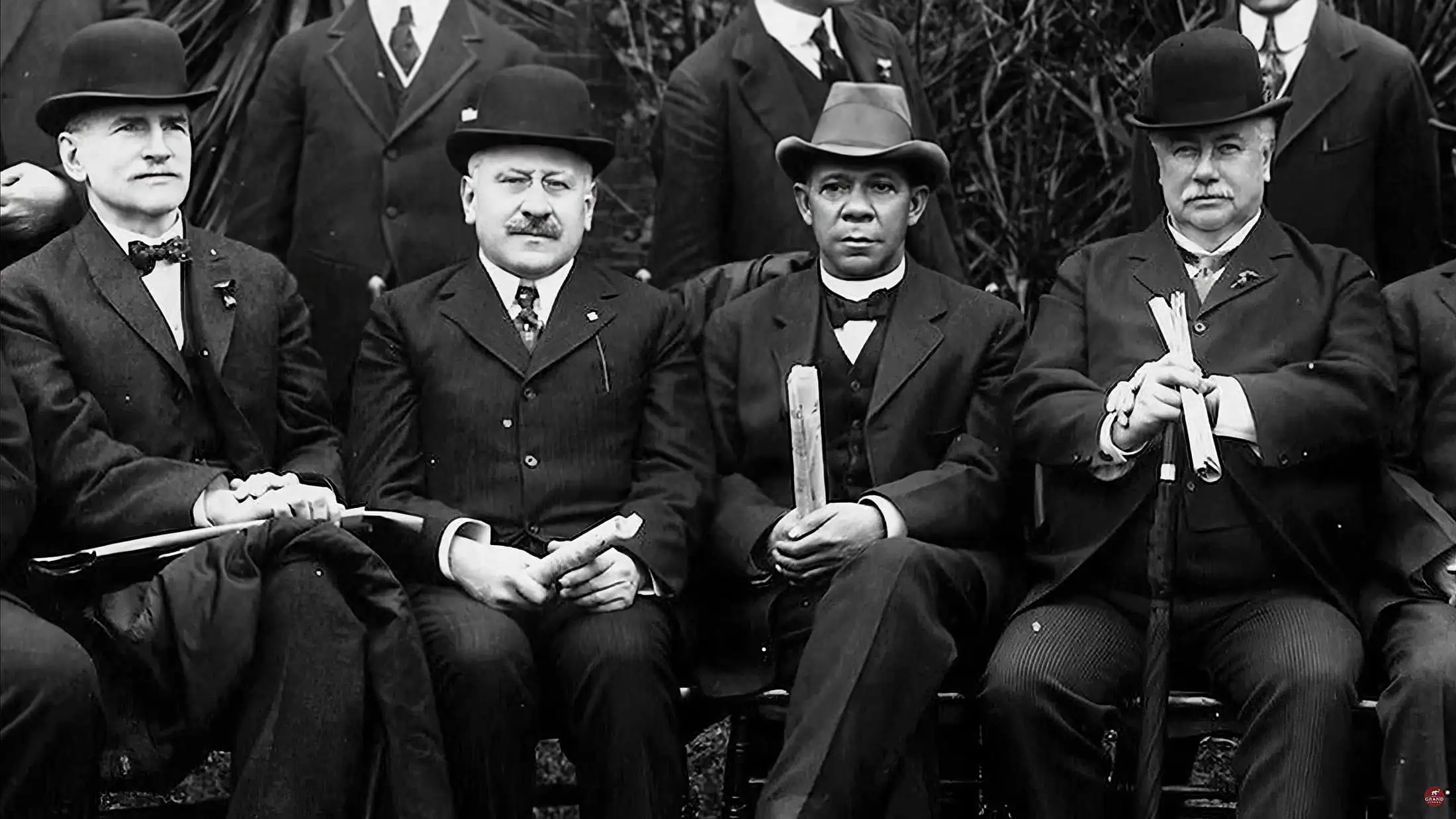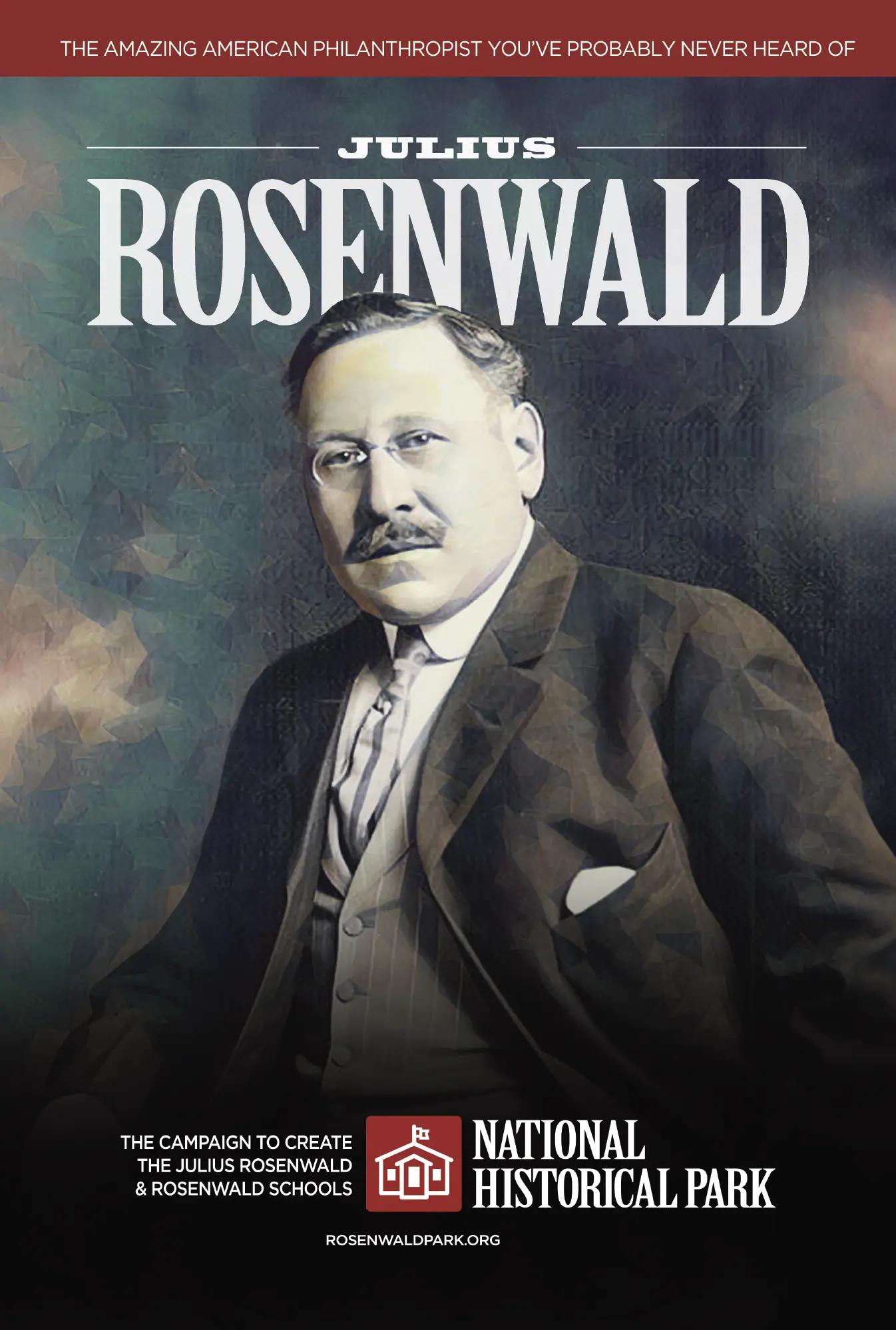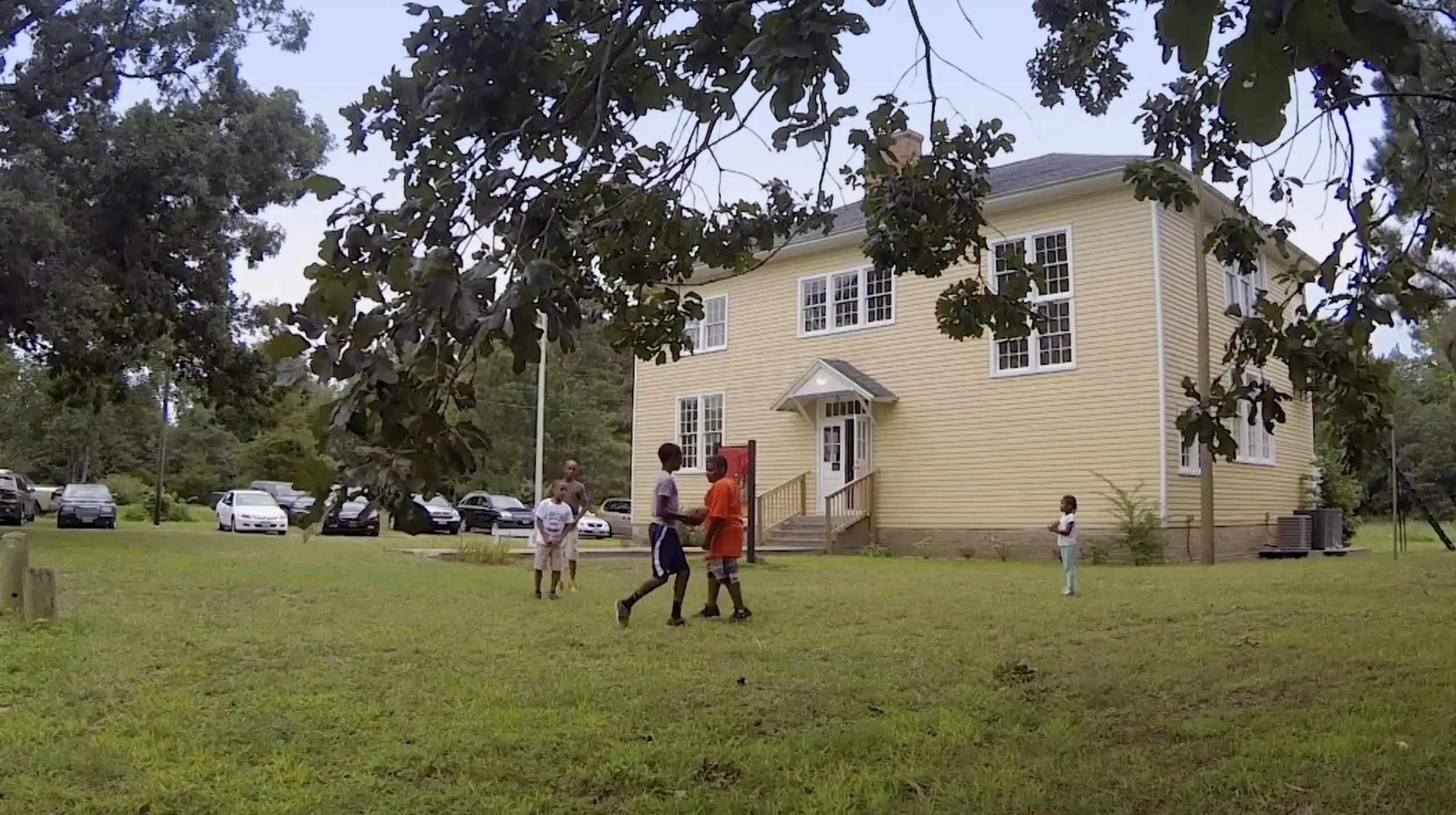Good news for fans of inspirational history and lives that made a difference! Legislation has been introduced to create a new national historical park honoring Julius Rosenwald and the Rosenwald Schools.

It’s a story that could only be made in America. At the turn of the 20th century, a Jewish-American son of immigrants from Chicago teamed up with an African-American educator to build nearly 5,000 schools across the Jim Crow South. Thanks to their efforts, tens of thousands of young black children across 15 states gained the education they needed to chase their dreams. As Rosenwald himself put it, “I do not see how America can go ahead if part of its people are left behind.”
Rosenwald also established a fellowship fund that gave critical support to the best and brightest African Americans in the arts and sciences, including Marion Anderson, Langston Hughes, Ralph Ellison and Ralph Bunche, who won the Nobel Peace Prize for his diplomatic efforts during the Arab-Israeli conflict in the 1940s.
But while Booker T. Washington has long been honored by the National Park Service, Julius Rosenwald largely disappeared from the history books. A couple of years ago, shortly after launching the Parks Channel, we had a chance to meet Dorothy Canter, President of the Rosenwald Park Campaign. A lifelong fan of national parks, she began the effort when she realized that not one of the more than 420 National Park Service sites celebrates the life and legacy of a Jewish American. “This is the great American story,” she said. “It involves Jewish Americans working with African Americans to make this a more perfect union.”
To help get the word out, we produced an award-winning short documentary, “Rosenwald: Toward A More Perfect Union,” that appeared in over a dozen film festivals and made its world premiere right here on our platform.
Watch the film. “Rosenwald: Toward A More Perfect Union.”
Both the US Senate and House of Representatives have introduced legislation to create a Julius Rosenwald and the Rosenwald Schools National Historical Park. It would include a headquarters and visitor center in Chicago at or near the Sears, Roebuck & Co. complex where Rosenwald made his fortune, and also establish a network of former Rosenwald Schools to help interpret the story throughout the country.


The House version of the bill identifies the San Domingo School in Sharptown, Maryland – which is featured in our film – as one of the designated sites, along with the St. George Rosenwald School in St. George, South Carolina.
The Senate version of the bill also directs the Department of the Interior to address the Rosenwald story at two existing NPS sites, the Lincoln Home National Historic Site in Illinois, which includes Julius Rosenwald’s boyhood home, and the Tuskegee Institute National Historic Site in Alabama, where architects designed the first Rosenwald Schools.
Introduction of the legislation marks an important milestone for the Rosenwald Campaign, which has worked tirelessly for several years, earning the support of more than 200 other nonprofit organizations. But the work is not done until the bill passes and the president signs it. You can show your support by donating to the campaign.
“The more people that are out there that support us and organizations that support this park, the sooner the park will be created,” Dorothy said. “And we hope that everybody that’s interested will sign on and help us.”
For more information, visit rosenwaldpark.org

